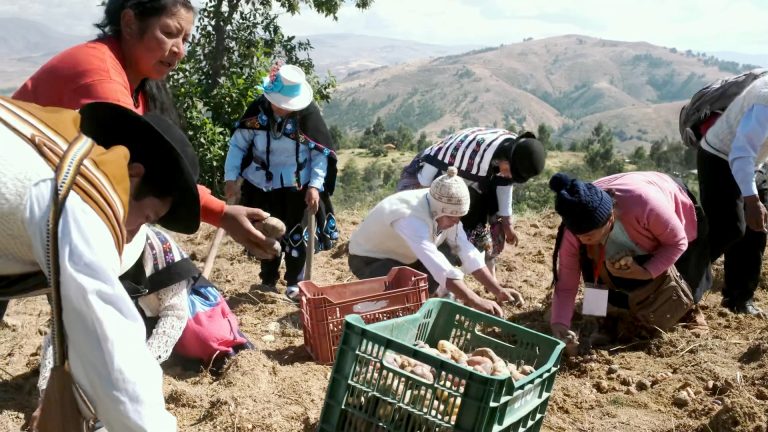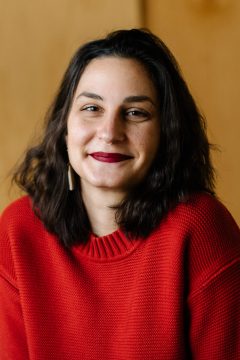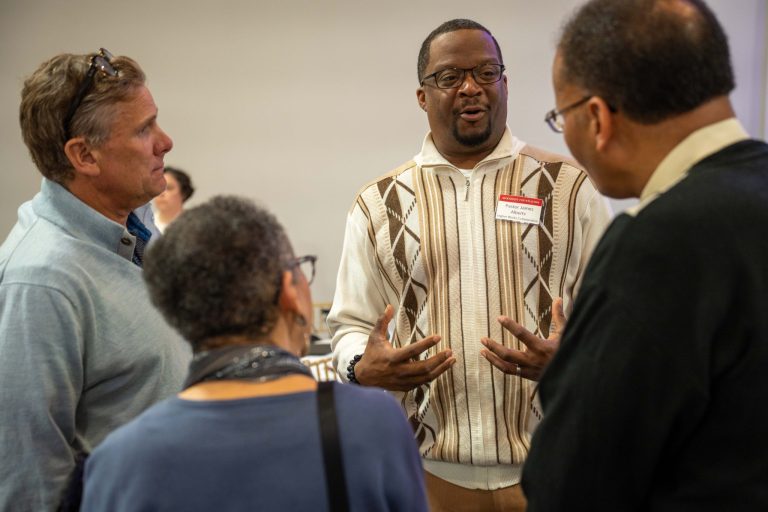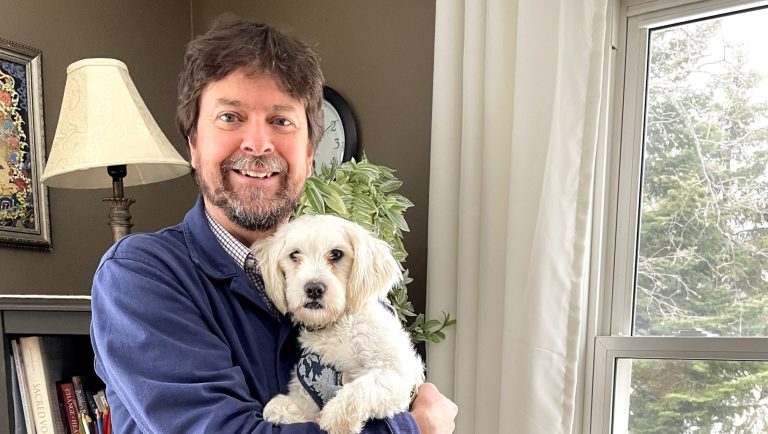Katherin Meza grew up in Huancayo, a city in the Mantaro Valley in the central highlands of Peru. With ten years of research experience under her belt, Katherin is now a doctoral student in the Ecology program at Colorado State University (CSU). Her work with advisors Dr. Steven Fonte and Dr. Steven Vanek at CSU on their project “Evaluation of Agroecological Options for Sustainable Soil and Landscape Management through Participatory Research and Evaluation of Land Uses” has brought her back home, partnering with a Peruvian NGO, Grupo Yanapai.
Grupo Yanapai promotes the empowerment of farmer organizations in the Andes through the development of agroecological research supporting family farming, promoting sovereignty and identity for sustainable rural communities. They work closely with AGUAPAN, the Association of Guardians of the Native Potato of Peru, a network of farmers who traditionally and ecologically cultivate hundreds of native potato varieties inherited from their parents and grandparents for family consumption and consumers. Katherin was nominated for our Courageous Characters series by Jane Maland Cady, the program director for McKnight’s Global Collaboration for Resilient Food Systems.
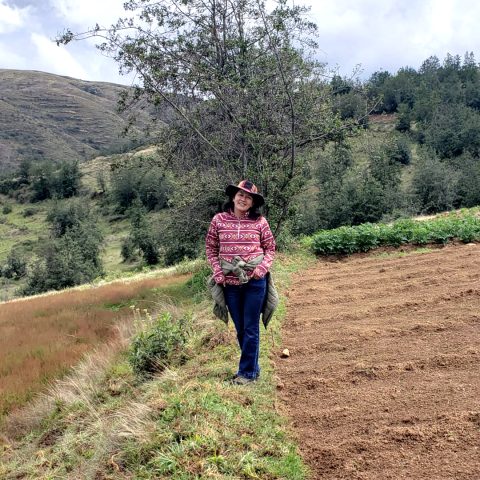
“Katherin is such an inspiration. She has a passion for her community and desire to improve the lives of farmers while also protecting biodiversity and improving soil quality. Other young people see what she’s doing and they get excited about agroecology, about the possibilities to create just food systems that support thriving local economies and a healthy environment,” Jane shared. We were thrilled to get to interview Katherin for this profile while working on our recent story about the network of farmers and researchers preserving Peruvian potato biodiversity, “Viva La Papa: 20 Years of Collaboration for Sustainable Food Systems in the Andes. "
INTERVIEW
The following interview has been edited for length and clarity.
McKnight: What future are you working to build?
Katherin Meza: Reflecting on the future compels me to gather all my motivations, limitations, emotions, and desires, envisioning a more inclusive society in which my voice and those of smallholder farmers can be heard without segregation, in order to build a more resilient Andean agricultural system. To realize my vision, my journey began long ago, when I decided to pursue a profession related to agricultural sciences. At the time, many people around me wondered why I would study agriculture if my family didn’t even have land to farm. To some extent, that was true, but it was not a limitation to continue my passion for working with farmers. Rather, it inspired me to be part of a team seeking strategies to regenerate soil health and promote sustainable land use in collaboration with farmers. Today, I feel deeply honored to collaborate with farmers from different generations, giving me the unique experience of getting to know them and witnessing the social and environmental challenges they face daily, while also sharing their joy, connection, and knowledge of the land.
“I feel deeply honored to collaborate with farmers from different generations, giving me the unique experience of getting to know them and witnessing the social and environmental challenges they face daily, while also sharing their joy, connection, and knowledge of the land.”– KATHERIN MEZA
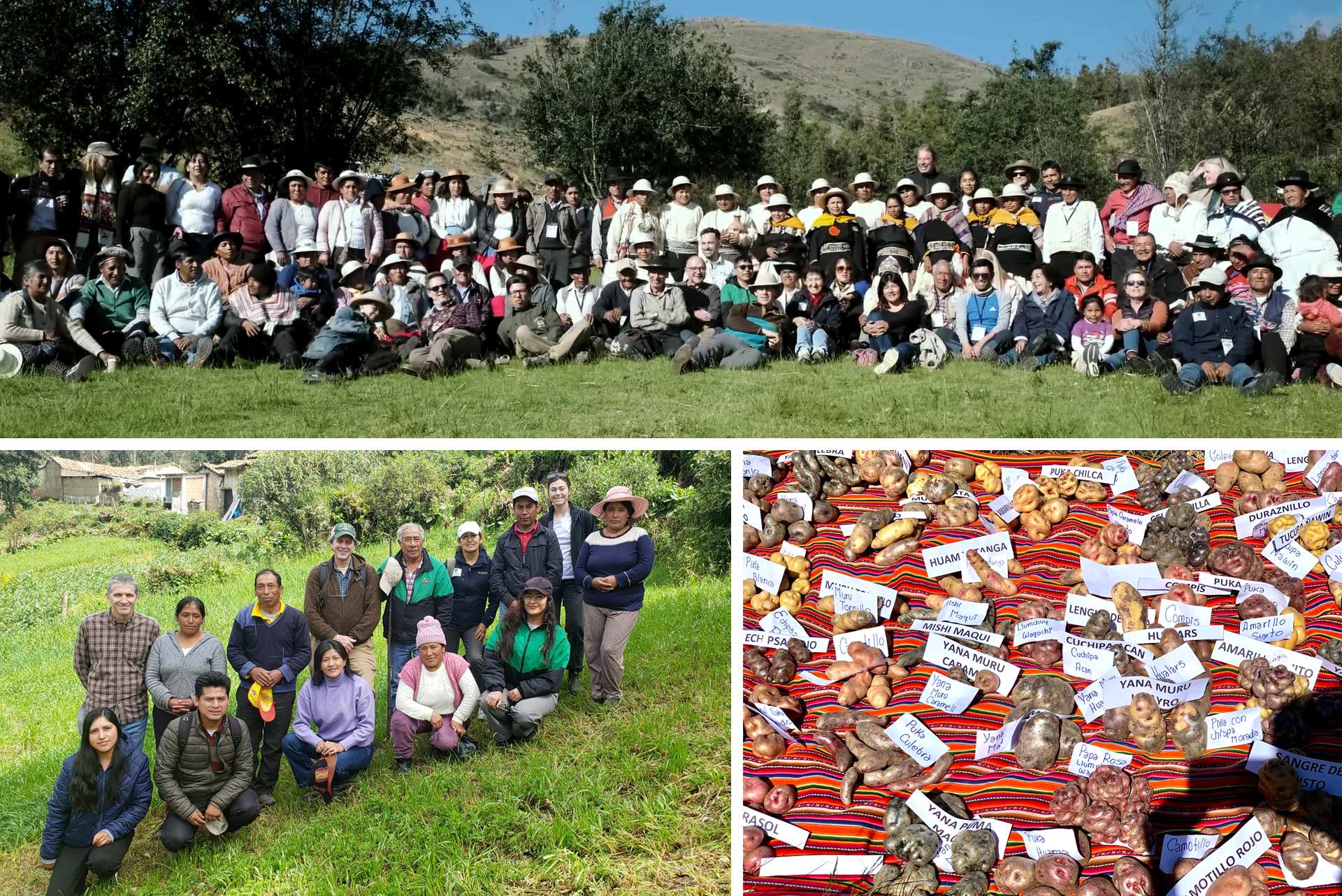
In January, after several months, I visited a community in Peru with which we collaborate closely, and one of the farmers excitedly asked me, “Why don’t you come? I want to show you the grasses we have planted. The soil is richer and has produced a lot of potatoes, and I have more animals.” On the way to his farm, he also shared more about his family and how they were doing. These experiences make me reflect and acknowledge that genuine social interaction continually feeds my motivation and inspires me to look for spaces where farmers can share their first-hand experiences.
For example, I recently had the opportunity for the first time to discuss agroecology and participatory research to create a just food system with key decision-makers from the Peruvian Ministry of Agriculture. It was interesting because the word “just” sparked discussion and reflection, providing an opportunity to introduce topics such as bottom-up approaches, well-being of smallholder farmers, soil-environment regenerations, and inclusive strategies—all principles that we strongly discuss in our Andes Community of Practice with McKnight’s Global Collaboration for Resilient Food Systems.
At a global scale, these platforms might not be sufficient to effect the changes needed to achieve my vision, but the energy and courage invested in promoting these events are important milestones to share our local and collaborative perspective to contribute to regional change through the promotion of healthy soil and resilient Andean agriculture.
Both my master’s and doctoral programs were supported by the McKnight Foundation—to whom I am grateful—and serve as vehicles to strengthen my career and achieve my vision. They have allowed me to bridge my research across international borders, enriching my scientific knowledge, gaining skills, and enhancing my leadership abilities. At the end of last year, I assumed the Diversity, Equity, and Inclusion Chair in the Department of Soils and Crops at CSU, and I’m eager to collaborate. I have also joined an initiative to recruit international students who can also experience the same opportunity that the McKnight Foundation offers me.
Reflecting on these anecdotes, I believe that my main strategy to achieve my vision is to take small actions and be part of others, a strategy that I plan to reinforce when I return to my country to build recognition of agroecological soil management, and the role of smallholder farmers in building just Andean food systems.
“My main strategy to achieve my vision is to take small actions and be part of others, to build recognition of agroecological soil management and the role of smallholder farmers in building just Andean food systems.”– KATHERIN MEZA
McKnight: What or who inspires you to act?
Katherin Meza: My actions are a mixture of motivation and inspiration. My mother, who frequently worked in the “field” with the farmers as an agronomist, often took me with her on weekends to meet the farmers and organize workshops. Those connections with farmers has helped me better respect farmer voices and knowledge, and helped me realize that we cannot share and work with farmers until there is trust and a sense of belonging. In addition, the mentorship I received from my colleagues at Grupo Yanapai, CSU, and the International Potato Center (CIP) has nurtured and supported my passion for soil science, landscape ecology, biodiversity conservation, and agroecology. Ultimately, my participation in the Andes Community of Practice supported by the McKnight Foundation provided a space where the interconnections of all of these research areas become a reality, helping me to develop a holistic perspective, and allowing me to understand the potential of my research on soil regeneration and farmer perception—with the ultimate goal of scaling up this practices while promoting the principles of our Community of Practice.
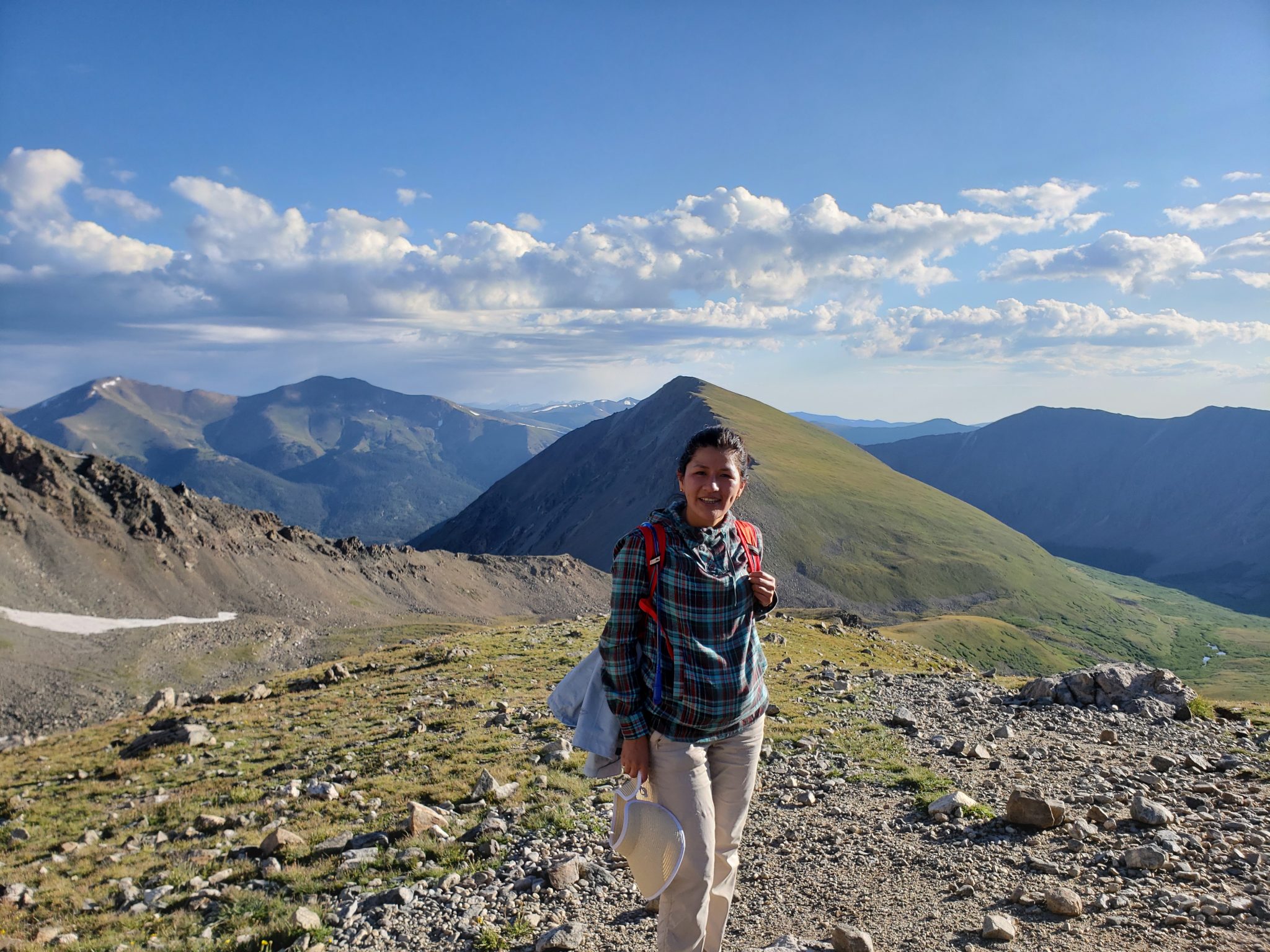
McKnight: What do you love about your community and your people?
Katherin Meza: The Mantaro Valley where I work—and where I grew up—is a very special place, mainly because it is located in the mountains, the Peruvian Highlands. Small-scale agriculture is done here and is based on the conservation of biodiversity. Peru is recognized for being the center of origin of the potato, and that makes it an even more special place. This diversity of our crops, potato, culture, and people is represented in our diets and society. It is impressive how much diversity can be supported by fragile soil and steep mountains. It is precisely for all of these reasons that institutions like Grupo Yanapai and McKnight Foundation support these efforts to continue preserving biodiversity, because it is important that these farmers can improve the quality of life for themselves and their communities and continue to make important contributions to agriculture.
Additionally, my strong commitment and love for what I do are influenced by the fact that I have now been part of the Andes Community of Practice for almost 10 years, and I still remember my first CoP meeting. I was intimidated by many international people speaking in English and Spanish. I was also one of the youngest at the time, but this fear eventually went away, as I discovered that this community was built on empathy and inclusivity. That gave me confidence and a place to speak up and share my thoughts. I experienced this same feeling once again when the Board of Directors of the McKnight Foundation visited our country and work areas last year. Each of them expressed their admiration for the farmers’ work and the Peruvian mountains, making evident the principles they support and promote within the Community of Practice. Undoubtedly, these principles reflect a family and organization with courage, motivation, and a great deal of empathy, genuinely advocating for global changes to achieve just food systems informed by local perspectives.
